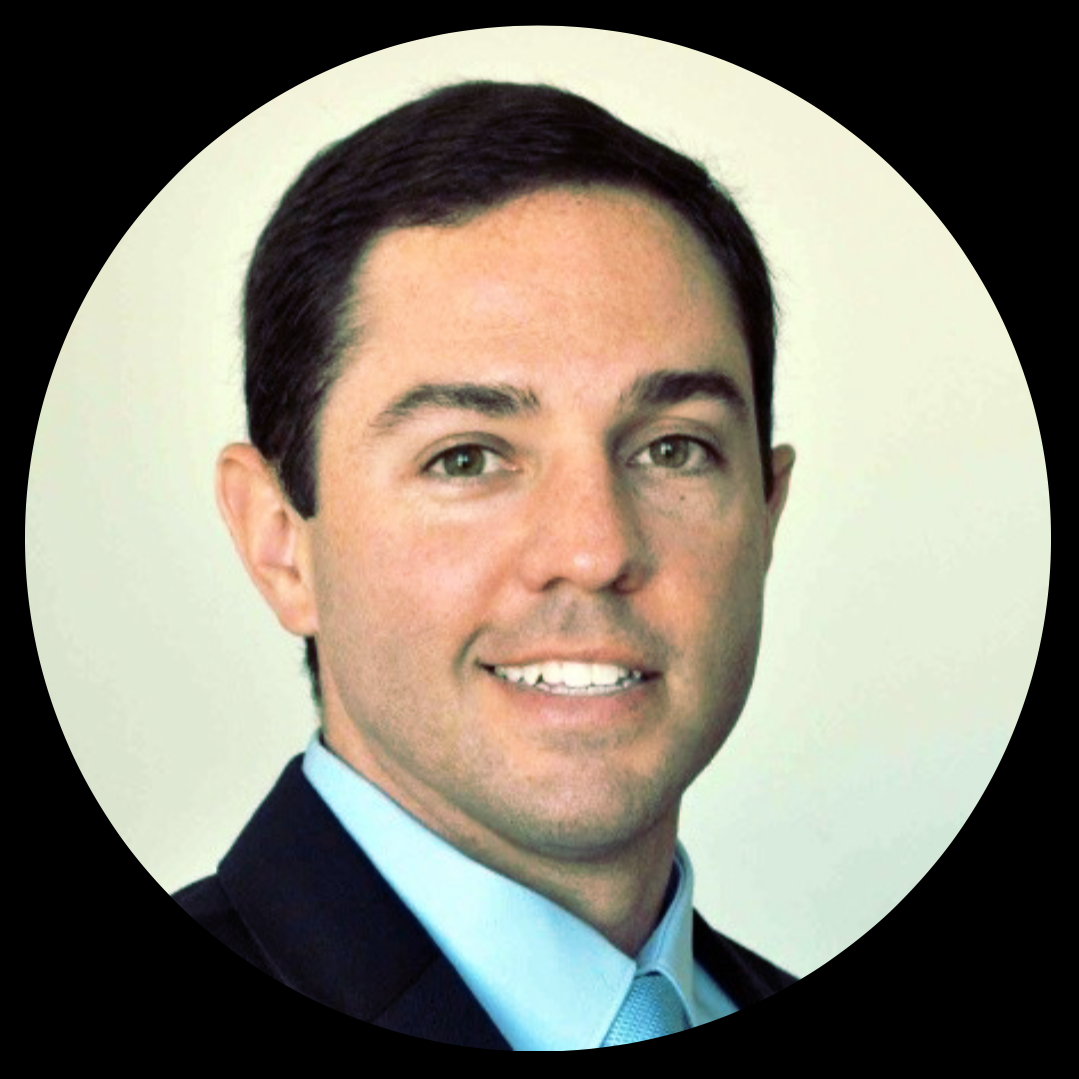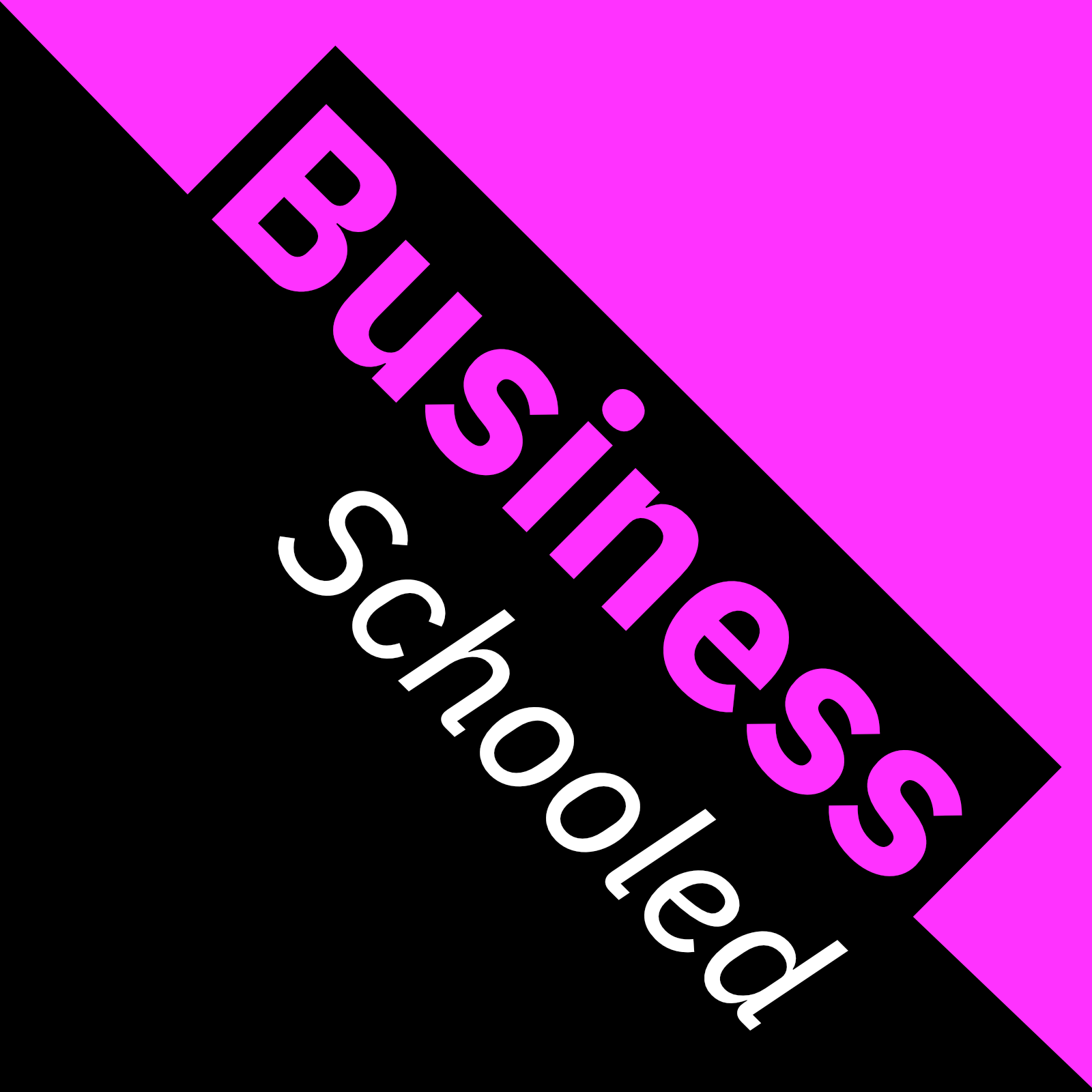Building authentic relationships with Frank Congiu
- 0.5
- 1
- 1.25
- 1.5
- 1.75
- 2
Daryl Pereira: Welcome, everybody. This is the Business School podcast, where you learn how the world of business is being redefined. My name is Daryl Pereira and I'm a senior content strategist here at IBM. Today I'm happy to be joined by Frank Congui. So Frank, tell us a little bit about who you are, what you do, where you came from.
Frank Congui: So there's two ways I can answer that question. If you give me a few minutes, I'll give you both intros and then I'll tell you why. So the first intro used to go something like this. So my name's Frank Congui, graduated NYU at the top of my class. Since I've joined the workforce, I've shattered every sales record in every company I've been at. At the age of 21, I bought my first rental property in Greenwich, Connecticut. Went on to buy several homes in Fairfield County, one of the wealthiest counties in all the US. Today I work with Fortune 500 executives. I'm far younger than many of the executives I coach. Just last week I had dinner with CEOs, politicians, and a few athletes and all sorts of interesting people. Nice to meet you. Now I know what you're thinking, " Jackass." And well, let me tell you something and that introduction, which is factually true, is the introduction that I would often rush to give in some fashion for most of my early career. And some people might say, " Why would you do that?" And some would say, " For credibility." Those are the generous people. Others might say, " Well, because you're a jackass." And there's a little less insight there. But in actuality that intro is really given because of deep- rooted insecurities. So there's another introduction that I can give you which is equally as valid. And I used to be afraid to give and it goes something more like this. I am Frank Congui and my family grew up in a tiny apartment that was actually a garage to start and my father had converted to an apartment. And my dad worked two jobs. My mother also worked so she could take care of us and the rest of the day she just worked part time. And the reason my dad worked multiple jobs was that he felt it was really important for us to have the opportunity to be in a school in a good town that had a good education because Greenwich schools are among the best. And when my father and my mother got a divorce when I was young, my father even started taking on a weekend job and asked me to get a job as well so that he would be able to buy me a car. And as I was growing up, I worked full- time, in terms of a weekend job and an after school job. And I think I was one of the only kids I know that had that kind of set up. But growing up poor in a wealthy town is something that I carry with me today because I always felt less than. And speaking of my father, he actually died in a motorcycle accident, so sudden passing and then my brother shortly after died from a drug overdose. So that intro used to scare the hell out of me and I never wanted to give anyone insight to my weaknesses and insecurities, but I often lead with that now. And as we get going, I can tell you a little bit more about why.
Daryl Pereira: And so in terms of, do you mind if we just hang here for a little bit, in terms of the way in which we define ourselves and our identity has a lot to do with what we achieve, what would be your tips for, it's great the way that you can, there's many ways we can define ourselves, what would you say in terms of how we should and why we should?
Frank Congui: Yeah, so I've got a strong point of view on this, and I say this at the dinners that I host. It's one of the things I open with and I always say, " We're going to go around and introduce ourselves, but what I'm going to challenge you to do is not talk about what you do for a living, where you work, what your title is, because at the end of the day, nobody cares. People care about who you are as a person." So my challenge to everyone and what I lead with is about who I am as a person. So I'll talk about my daughters, I'll talk about my family, I'll talk about what's important to me, my passions, my hobbies, things that are going to resonate, my struggles. And I think it's tough for many people to go there and be vulnerable, but I can promise you that when you do let your guard down and let people in, you build far more authentic relationships.
Daryl Pereira: And how far, did you have any guardrail when you think about things, are there also ways in which you think about positioning of things like your struggles and the challenges that you've faced? How should people address those?
Frank Congui: Again, it all depends on the dynamic of where this is happening. So if I'm meeting a client for the first time or a prospect for the first time, I'm probably not going to go super vulnerable. I'll lead with the basics, but I will ask questions to see if I can get them to go there. Oftentimes it takes you leading with something vulnerable to get somebody to open that. And what I refer to as they're opening their, becoming more porous and being willing to share. So whenever I do these things, and when I do this even with my own team internally here at Ezra, I do something I either call like a sweet and sour or a personal professional check in, and I model that and lead it intentionally so that if I share something vulnerable, it opens people's willingness to then go ahead and take the risk and do it as well. But if I just say, " Hey, everything's going really well and onto you, Jeff." Chances are that Jeff's going to say that everything's going really well and it's going to be a quite bland response and you get almost nothing out of it.
Daryl Pereira: And just to switch gears a little bit here, you talked to, just so folks understand, you spend a lot of time with heads of HR from organizations. What would you say in terms of, are there any kind of trends, patterns, things that you see in that group that jump out to you and that might be useful for people to know that might be sitting on the other side of this? So you're thinking about either entering the workplace or maybe you are new into the workplace and you're wondering how you're perceived or how the organization's thinking about you.
Frank Congui: So I think there's probably two ways to look at that. So what are the priorities for global heads of HR? So I recently, as I mentioned I think, I do a series of dinners across the US where I'm able to convene these global heads of HR and it's really in service of them. That's part of my currency or my generosity is pulling these executives together who are often inwardly focused at another organization and bringing them to talk about the issues that are important to them. So the things you're hearing a lot more about these days are workforce planning, which is getting insanely more complicated, particularly given just if I look at my own LinkedIn feed, I see stuff about ChatGPT and OpenAI and every other competitor rushing into this space and how it's going to eliminate so many roles and people are panicking, robots are going to take over their jobs. I don't know that that's completely accurate, but the reality is there's going to be a lot of disruption with that. How can organizations automate, scale, create new jobs? That's a massive topic. One thing that you guys are phenomenal at, and I've gotten a chance to know Nickle, your CHRO and talk about IBM, which you guys are, I think you're the pioneers in this space for the skills- based hiring approach and companies like Accenture are great at this as well, but really thinking about how do we have these skills- based assessments so that we are creating more opportunity for individuals that necessarily may not have a four- year degree but are very capable of doing the job? D&I is absolutely a massive priority for all organizations, not because it's the right thing to do, but because it's been a proven fact that companies with more diverse thinking far outperform their peers that don't have as much diverse thinking. And so I think part of that whole idea around skills- based hiring has ramped up the ability to have a more diverse workforce because no longer do you need to have the funding for a four- year degree, but you can go in and take an online bootcamp course and get a certificate that demonstrates you're capable in AI and now land a job at a company like IBM of which you maybe wouldn't have otherwise had that opportunity. So those are probably the three biggest priorities for these organizations. Of course, all the other things like employee experience, managing a digital transformation which is ongoing, how do we retain talent? Particularly even coming out of COVID, it's still very tough for companies to retain top talent because there's so many other opportunities. There's a number of different paths they can pursue, whether it's in their own organization or outside their organization or in industries or roles that didn't exist a couple months ago. So there there's a lot of different trends, but I'd say those are the key or priorities that organizations are putting a focus on.
Daryl Pereira: That's interesting that you point to this idea of the fact that sometimes technology, sometimes other changes in the environment are leading to, from an HR perspective, to think through, okay, do we have the right mix of individuals that are required to for us to perform and for us forward at a high level as an organization? And the way in which that is, it sounds like that area is changing rapidly and it probably would serve individuals that are either in the workplace or think about the workplace for themselves to consider some of these changes as well and what it may mean for their own careers. If I think of certain, like you mentioned with ChatGPT in these areas, it does feel like it may take away certain tasks that humans have been doing for a long time. Perhaps tasks that it seems like it's particularly well served in areas like customer service and some of these areas where you've got a lot of high areas of repetition, but then also then there feels like there's also the strategic aspect to it as well that if those people are almost like taking away the grunt work so people can focus on the more strategic aspects. Does that come up in discussions with HR leaders in terms of-
Frank Congiu: Absolutely. I just spoke to a CHRO this morning and this was the first time I've ever heard this, it was quite interesting. But he has asked his direct reports to spend 25% of their time thinking about how, and not specifically ChatGPT but AI in general, can help make them more effective in their roles and then they report out on it each week. So it's a sharing of best practices around how they can acquire talent in a better way, how they can improve performance reviews through all these different channels of artificial intelligence. So there's so many different things that I think we haven't scratched the surface. And if we were to redo this in six months, I bet we'd be having a much different conversation because the pace is so rapid.
Daryl Pereira: In terms of at the individual level, if someone is looking to be hired, are there certain traits or there certain patterns that you might unexpected things that people may not consider when they're going through the hiring process?
Frank Congui: Yeah. So I'll skip over all the obvious things, right? Because of course it's going to be dependability, communication, having a positive attitude and things like that. The things that I hear from global heads of talent acquisition is, and this struck me, was ambition. So it used to be that people wanted someone that was going to come in to an organization and be there for years and a career, that would be within an organization. And companies have come to the realization that's not the reality anymore. So they more now want to get a sense for how ambitious is this person to achieve the next promotion, to take on things greater than the role of which they're being hired for. So I think I'd say people who are looking for a role should come in and have a willingness to share their desires and their ambitions for what they want to achieve, their dreams with a potential employer knowing that it's a safe space to say that it may not all occur with that company you're interviewing with. Emotional intelligence is something that I think companies are also looking a lot more at. Cultural fit is probably another way to look at it. But does this person have the emotional intelligence to be a leader within their organization? Collaborative mindset, this is something that is coming up more and more because as companies are returning to office and everybody's got a different policy, but at the end of the day it's this idea of how do you collaborate in an asynchronous way now, which is becoming more and more prevalent. So that's something I'm hearing a lot about. So being able to demonstrate that you can be collaborative both while you're in person in an office, but also figuring out ways to do that remotely. Curiosity, I'd say one of the biggest fails is that so many times people go into an interview, and I hear this all the time from hiring managers, is that we did this interview and it was 45 minutes and I asked so many questions and then giving the individual the time to ask questions, they either had no questions or it was a very basic question. I think having some good questions around what's the future state of the business? What are the challenges? Where do you see opportunity for me to come in and grow this business? Having personal curiosity is huge. Hey, what red flags do you see with me as a candidate? Or why am I better a candidate than the others you've spoken to so far? You'll learn a lot more on that question than you probably do on any of the others. So those are some of the things I think. Of course people want to see someone that's creative, resilient, they're going to gauge you for adaptability given all the constant change. But the first few that I mentioned are probably the big ones.
Daryl Pereira: Just to focus a minute on that, like you say the degree to which you should be prepared to add that curiosity and asking questions. I'm guessing that you may even have some questions. Ideally you should be, well, you should be tailoring your resume for each job and as you go through or tell me if that's not the case. But if you are going through that process and maybe think there may be ways in which when you look at the organization, you start seeing certain things that raise questions and maybe that could be a place as well to make sure that you come across also as not just having a rote list of questions that you're asking every hiring manager you meet, but also it's-
Frank Congui: It's doing your homework. When I was interviewing for my last role, I looked through all the Glassdoor scores and I looked through the Glassdoor ratings and some of them were harsh and I said, " Tell me why this person said that." And I came armed with very specific quotes because they were red flags to me. Is this a company I want to join? And so doing your homework around earning like, " Hey, I've looked at your stock price as gauged against your two biggest competitors. You're in a downward trend and they're in an upward trend. What do you attribute that to? And what is the CEO's strategy to get out of that?" Most people aren't asking those questions and they're not hard, right? It's like you can pull up ticker symbols 10 minutes before an interview and I'm not suggesting do it 10 minutes before an interview, but the reality is this stuff is not hard to do and a curious person would've done all of this sort of stuff and I think people appreciate that.
Daryl Pereira: And then in terms of if you're working at an organization, obviously, especially even if it may be a big organization, it can be important to spend time fostering the relationships and building those relationships within the enterprise. Would you say it's also important to build relationships outside and how important is that and how should someone approach that area?
Frank Congui: So the short answer is it's very important. I wish I understood this more at an earlier stage in my life. I wish I had put an emphasis on this. I think when you're first starting in your career, your goal is to be connected to senior leaders in the organization. Depending on the role you're in, I'm a salesperson, so I want to get connected to prospects, I want to get connected to clients and get deep and wide within those. But what I've been finding is through doing things like spending time on LinkedIn, going to local networking events, conferences, I'm getting a ton of insight through how to be more relevant in front of clients, how to be more effective in what I do.
Daryl Pereira: So in terms of then using platforms like LinkedIn to make these connections and to understand folks is a great tip. When it comes to relationship building and going into that space, what advice would you have for folks?
Frank Congui: Well, I mean for starters I'd say prioritize it, right? Because what I find is that people who have strong relationships in their life are generally happier people. And you see this because people who have strong networks tend to have far longer lifespans. But again, as I mentioned earlier, if you believe in that simple concept that we can become more successful through in the help of with other people, then it's really crucial to our success no matter what we want to achieve our lives, whether it's be a President of the United States, President of a company is being more intentional about the people we want to spend time with. So to do this, we really have to have a list of those individuals and prioritize them because at the end of the day, you only have so much time in your day. And so I look at it through this process of focus, which is know your goals and being able to articulate them and share those goals with other people because once you can share your goals with other people, it's amazing how much more help you can get for people because now they know how they can help you. Target, which is knowing the individuals of which are going to help you achieve those goals. And you can start at the constituent group level, like media, HR leaders, name the constituent group and then start to put companies and names to that. And then what I do is I prioritize them with a relationship qualities score zero to five, zero, I don't know this person, five, best friend. And it gives you a sense for am I advancing these relationships over time? The next piece is really defining your value or what your currency is. Why should this person want to take your call? Why should they want to meet with you, get lunch? Everybody's going to have a different value proposition and different currency, but I think if you can come up with a list of ways you can be helpful, that's going to make you far more successful. The other piece is align. Everyone has some sort of network, right? Who are the people within your net you can align to your goals that want to help you. And then the last piece is outreach. None of this means anything if you don't reach out to people and what are the channels you can do that to engage people? So I've carved out a space for myself as being known as the guy that throws the best CHRO dinners. And that didn't start, it didn't happen overnight. I pulled together one dinner and then built on it and did the next one and did the next one and now done north of 50 of these dinners. And so that's one of my channels. But simple things, I reach out, I create articles. So I interviewed your CHRO for a piece around what the leading organizations are doing to close the skills gap. That wasn't something my company sponsored. I made up a topic and I said, " I want to talk to the best practitioners about this." And it can be as something as simple as a phone call or whatever, but I would say think about all the different ways you can reach out to people and come up with a playbook that you can action.
Daryl Pereira: Nice. I love that. I'm bringing this around, you started from a place of authenticity and honesty and thinking in terms of that aspect, let me ask you one final question. In terms of the setup and getting ready for this podcast here, you were introduced to myself through somebody in IBM and we'd started conversing. I recall that I pretty much dropped off the face of the earth. I hit a busy patch at work. And then it goes back to what I was saying earlier. My simplicity goal is sometimes is not going that well. And so all of a sudden I found myself juggling more plates than I could manage. And it was one of those things, I think I woke up on a maybe Wednesday morning or something, " Oh my God, I told this guy I'd get back to him on a Monday. And here we are sitting on Wednesday and I haven't responded." And maybe, and then it made me think about, " Oh geez, what does he think about me and what I think about the priority of us talking?" But thankfully to your good self, you didn't just cut the connection, you kept the contact and we're here today. Any advice for when things, if you do hit these kind of road bumps or if something happens with the relationship, especially those where you think it's not necessarily that way you said earlier where there may be a relation where you start to feel that maybe it's one side or it's turning and those might be the ones where you need to walk away, but ones where you feel this is productive, just something, we're humans and something happened that I wasn't expecting?
Frank Congui: Yeah, look, I think the first thing is being honest and transparent. So sharing that. People understand that life gets in the way. People have priorities they're juggling and so on. And so the first is not running from it and making excuses. Earlier in my career, I used to always want to make up an excuse, someone got sick or something like that. And now I just lead within like, " Hey, this last week has been crazy. I just got back from vacation. I'm under an avalanche of emails. I apologize for being so tardy in my reply." And that second part is key, right? It's just mea culpa. So if you feel like you've over committed and maybe didn't live up to something you committed to, just own it. People are more forgiving and understanding then I think people, you want to believe and the person that has the ability and the integrity to just simply say it, is going to be well received almost all the time.
Daryl Pereira: Nice. I love that. Okay, well I think that's a good place for us to cut out. We could go on for hours here though. You've got so many tips and tricks, which I think are useful regardless of where somebody is in an organization or where they're in their own career. So I really appreciate you taking the time today to, out of your busy schedule, to talk to us. But Frank, if people did want to know more about you and to understand the organizations they work for, what would you recommend?
Frank Congui: Well, first of all, find me on LinkedIn, Frank Congui. Yeah, the organization that I work for, which we're really passionate about and what I'm passionate about as you can hear, I'm passionate about helping people. And so Ezra is a coaching business that helps to make coaching scalable and affordable to everyone where it used to be cost prohibitive and coaching was only available to executives. Our mission is to really bring it to everyone. And so I'm quite passionate about the idea of helping people, whether it's through charitable means and professionally, I believe coaching is one of the most underutilized and most powerful channels to get the best out of individuals. So that's a bit about what I do.
Daryl Pereira: Well, appreciate you spending your time. Thanks. This is Frank Congui, and this has been the Business School podcast where we discuss emerging trends in business and areas of business that you may not cover if you've been to business school.
DESCRIPTION
Frank Congiu is a senior executive at EZRA Coaching, an innovative, digital career coaching platform. In this episode he explains how our identity shapes our relationships in business, what HR leaders are looking for in the modern workplace, some of the unexpected qualities hiring managers are looking for, and the traits of successful executives.
Your host: Daryl Pereira, IBM Senior Content Strategist
Today's Host
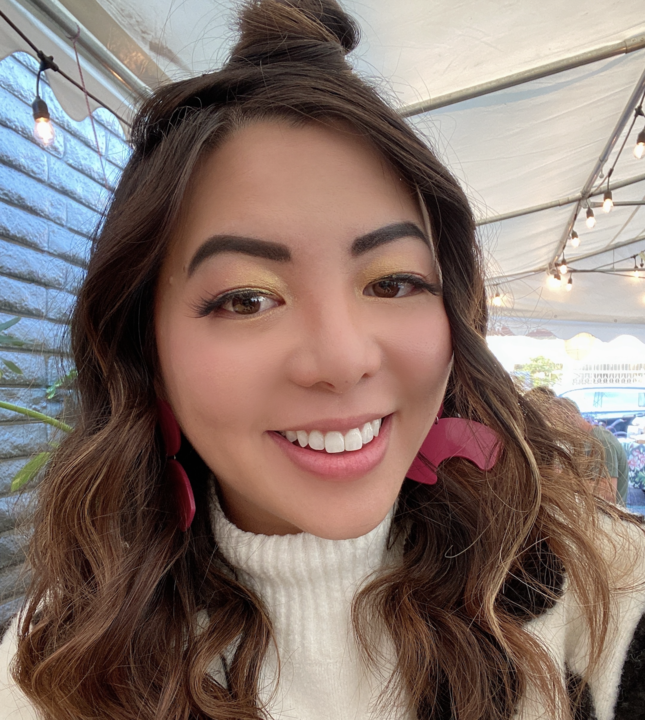
Cristina McComic
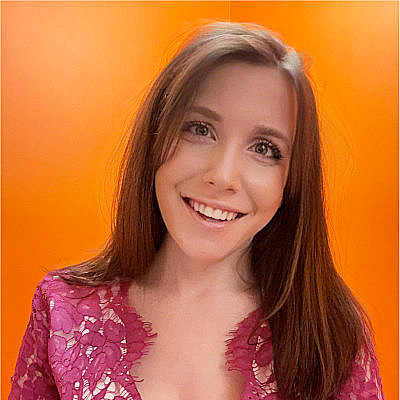
Sam Smitte

Amanda Downie
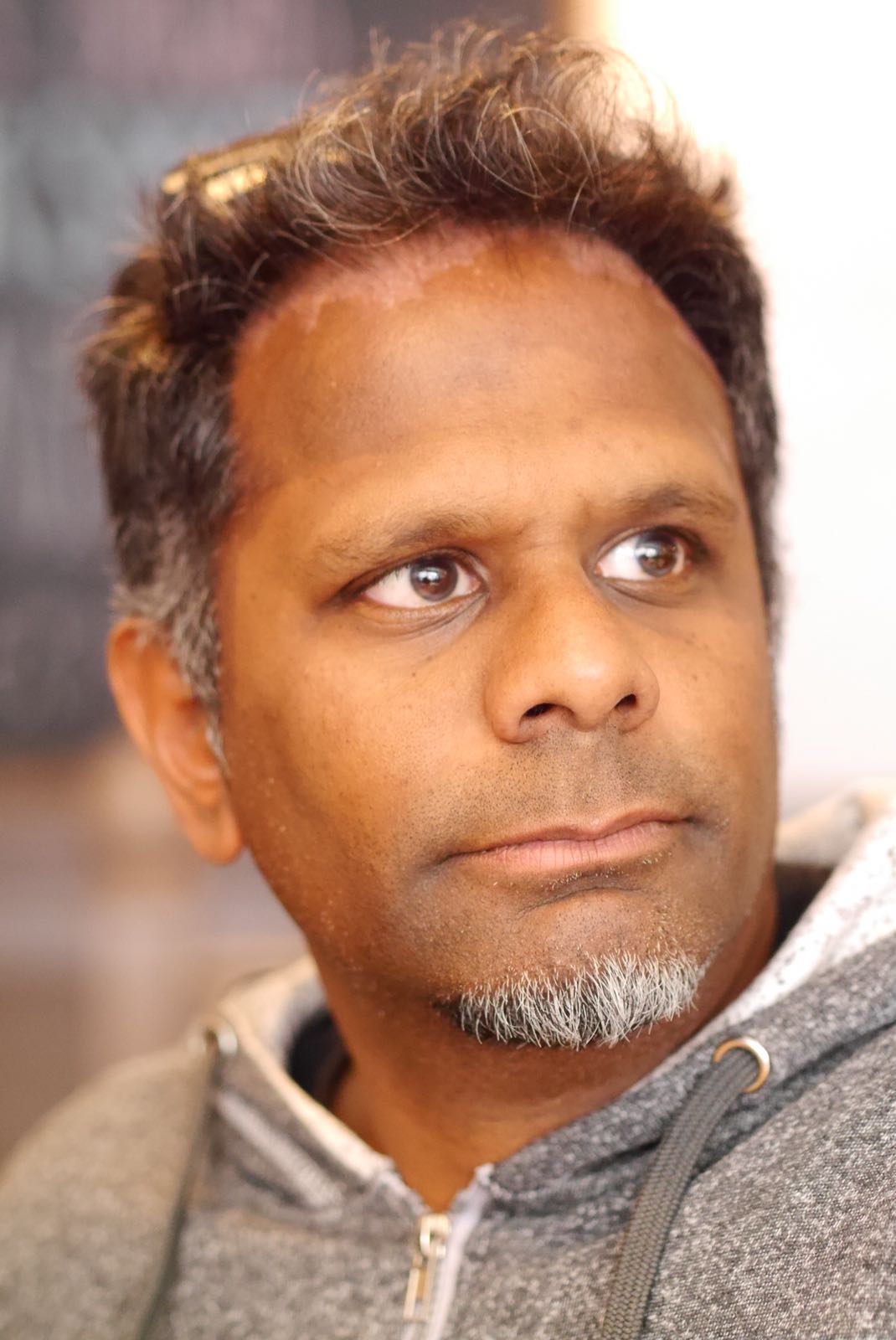
Daryl Pereira
Today's Guests
